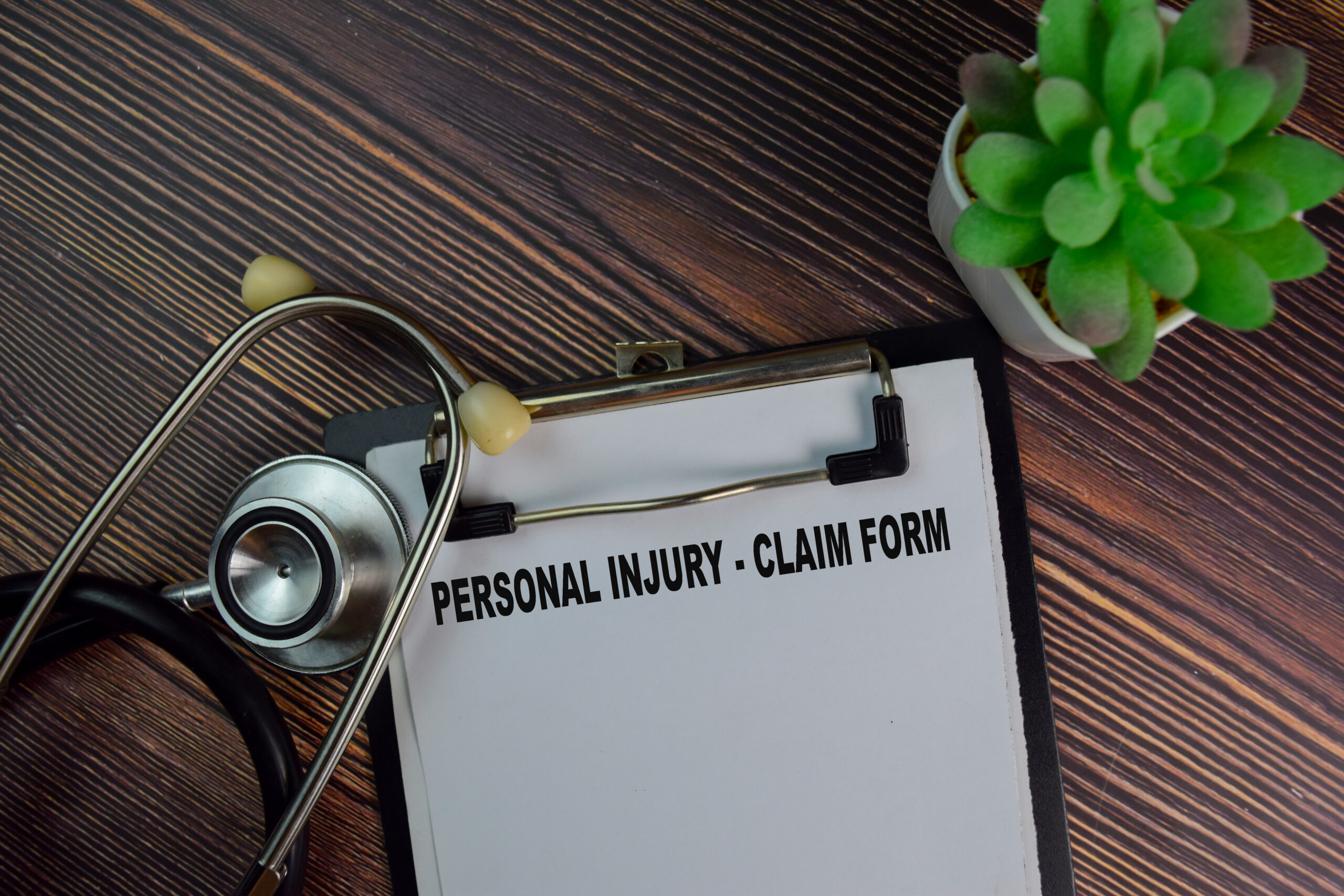Getting injured in an accident can be a scary and overwhelming experience. Medical bills pile up, you might miss work, and the pain can make it hard to focus on anything else. If someone else’s negligence caused your injuries, you may be entitled to compensation through a personal injury claim. This article will guide you through the process, explaining what to do (and what not to do) to increase your chances of a successful outcome.
When encountering an incident that caused you injuries and the need to file for a personal injury claim arises, you must:
1. Seek Medical Attention
Listen, your health comes first. Maybe you bumped your head or tweaked your back in the accident. It might not seem like a big deal, but that’s the tricky part. Our bodies are amazing at hiding pain, especially right after something happens.
The adrenaline rush can numb things out, and some injuries, like whiplash, can take days to show themselves. That’s why getting checked by a doctor as soon as possible is so important. It creates a clear record that ties your injuries to the accident. Think of it as a paper trail that proves what happened and helps your case down the line.
2. Gather Evidence
The more proof you have, the stronger your claim becomes. Think of it like building a puzzle – the more pieces you collect, the clearer the picture gets. If you’re able to, take photos of the accident scene from different angles. Try to capture things like skid marks on the road, damage to vehicles involved, and any hazards that might have played a role in the accident.
Were there any witnesses around? If so, get their contact information and see if they’d be willing to give a statement about what they saw. These photos and witness accounts can be incredibly helpful in piecing together how the accident happened and who might be responsible.
3. Be Completely Honest With Your Doctor
Talking to your doctor is a two-way street. It’s important to be completely honest about how you’re feeling, both physically and emotionally. Don’t try to be a tough guy and downplay your pain or discomfort.
Be open about any aches, soreness, or emotional distress you’re experiencing. The more your doctor knows, the better they can treat you and create a treatment plan that’s right for you. It’s important to remember that your medical records become part of your personal injury claim, so having accurate documentation of your injuries is crucial.
4. Consider The Help Of An Attorney
You might be wondering if you need a lawyer to handle your personal injury claim. While you can technically go through the process yourself, there are many benefits to having an experienced personal injury attorney by your side.
If you are from Kansas and you need a skilled personal injury lawyer in Topeka, you can easily find one to represent you and fight for what you deserve. These lawyers specialize in personal injury cases, so they know the ins and outs of the law. They’re like experts on the legal playing field. They can handle all the tough stuff for you, like talking to insurance companies and gathering evidence to support your claim.
They can also translate all that legal jargon you might hear into plain English, making sure you understand every step of the process. With a lawyer on your team, you can feel confident you won’t miss any important deadlines or missteps.

Now, when filing a personal injury claim, here are things you must avoid:
5. Don’t Delay
After an accident, the last thing you probably want to think about is deadlines and lawsuits. Healing should be your priority. But here’s the thing: every state has a specific amount of time, called a statute of limitations, that says how long you must file a lawsuit. Missing this deadline can make it much harder, or even impossible, to get compensation for your injuries later.
So, here’s the good news – you don’t have to deal with this alone. While you focus on getting better, talk to a personal injury lawyer as soon as you can. An attorney can explain the laws in your state and make sure all the paperwork gets filed on time. This way, you have the peace of mind of knowing you’re protecting your options.
6. Don’t Discuss Your Claim With Anyone Besides Your Lawyer
After an accident, you might get a call from the other person’s insurance company. It’s totally normal, but here’s the thing: their main job is to settle your claim for the least amount of money they can.
That’s why it’s important to be careful about what you say to them. Don’t go into a lot of detail about your injuries or how the accident happened. Instead, just politely tell them you have a lawyer and refer them to that person. Your lawyer will be much better equipped to handle those conversations and make sure you get treated fairly.
7. Don’t Post About Your Injuries Online
We all love sharing our lives online, especially after a big event. But if you’ve been injured in an accident, it’s best to hold off on posting about it on social media for a while. Insurance companies and lawyers on the other side might be looking at your social media profiles. They could potentially use something you post to downplay how hurt you are, or even try to say you were partly to blame for the accident.
While your claim is going on, it’s like you’re telling your story in a legal setting. Social media is a whole different conversation, and it’s best to keep those separate. So, for now, it might be a good idea to make your profiles private or take a break from posting altogether.
8. Don’t Accept the First Settlement Offer
It’s common for insurance companies to reach out with a settlement offer soon after your accident. This might seem tempting, especially if you’re facing mounting medical bills. But hold on! These first offers are usually much lower than what you might deserve.
Remember, compensation should cover everything. That means not just the medical bills you have right now, but also any future treatments you might need because of your injuries. It should also include lost wages if you can’t work while you recover, and compensation for the pain and suffering you’ve been through.
The bottom line? Don’t settle for anything until you have a clear picture of the full impact of your injuries and the related costs. Talk to your lawyer about the offer, and don’t be afraid to wait until you get a settlement that feels fair.
9. Don’t Lose Track Of Medical Bills And Records
Medical bills can pile up quickly during your recovery. It’s important to hold onto everything, from doctor bills and prescriptions to receipts for medical equipment or medications. Also, if you’ve had to miss work because of your injuries, don’t forget to keep your pay stubs showing lost wages.
This might seem like a hassle, but it’s important. The more organized you are with these papers, the easier it will be for your lawyer to calculate the total amount you’ve lost due to the accident. A clear picture of your expenses strengthens your claim and helps ensure you get fair compensation.
What To Expect On A Personal Injury Claim
The personal injury claim process can take time. There will be paperwork, negotiations, and potentially court appearances. Be patient and stay focused on your recovery. Your lawyer will keep you informed of any developments and guide you through each step.
Remember, you are not alone. Millions of people navigate personal injury claims each year. Thankfully, 4% to 5% of these only end up in a court trial battle, and most of these claims often end up in settlement.
By following these dos and don’ts, you can increase your chances of a successful outcome and receive fair compensation for your injuries. But first, here are additional tips to consider when filing a personal injury claim:
- If you need to miss work due to your injuries, obtain a doctor’s note documenting the necessity of taking time off. This strengthens your claim for lost wages.
- Keep a journal to document your pain levels, limitations caused by your injuries, and any emotional distress you experience. This ongoing record becomes valuable evidence when building your case.
- Be wary of free medical care clinics offered by the at-fault party’s insurance company. These clinics might not prioritize your well-being and could potentially steer you towards treatment that downplays the severity of your injuries.
- Throughout the process, maintain a positive attitude and focus on getting better. Don’t let the stress of the claim overshadow your healing journey.
Take note that this article provides general information and shouldn’t be a substitute for personalized legal advice. Every personal injury case is unique. Consult with a qualified attorney in your area to discuss the specifics of your situation and get tailored guidance.
Finding The Right Lawyer
Choosing the right personal injury lawyer is a crucial step. Look for an attorney who specializes in personal injury cases and has a proven track record of success. Schedule consultations with a few different lawyers to find someone you feel comfortable with, someone who explains the process clearly and answers your questions thoroughly.
Here are some questions you can ask your lawyer:
- What experience do you have handling cases similar to mine?
- What are the strengths and weaknesses of my case?
- What are the potential costs associated with legal representation?
- How will you keep me informed about the progress of my claim?
- By asking these questions, you can ensure you find a lawyer who is a good fit for your needs and will effectively represent your interests.
Final Thoughts
Getting injured in an accident can be life-altering. The physical, emotional, and financial burdens can feel overwhelming. However, understanding the personal injury claim process and following these Dos and Don’ts can empower you to navigate this challenging time. Remember, you have the right to seek compensation for your injuries, and with the right guidance, you can secure the resources you need to heal and move forward.

